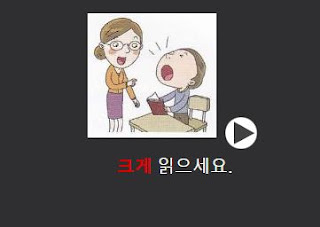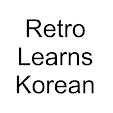I've been wanting to write about this for a while. I see a lot of people over complicate their experience with Anki and even shy away from using it all together because they perceive it to be more complicated than it is. The first thing I will state is that all the content within this article is based off of my own opinion of the software from how I've used it and how I've seen others use it.
The first thing to note is that Anki is merely a supplement to your learning. The reason and method of using Anki will vary throughout your language learning journey. However one should not feel obligated to use it at any point. Once it becomes boring or you forget the reason you're even using it, then simply just stop.
You can download for free Anki here:
How I've used Anki while studying
Near the beginning of my studies, like most learners, I had done some research into how to learn and what resources were recommended. I often saw Anki recommended, personally I thought it was easy to set up and create cards. I had picked up this My First 500 Korean words by Talk to Me in Korean and thought it would be a great idea to make them into a deck which you can find here. Looking back it wasn't the most optimal way to cover the words but I systematically added them to Anki 10 per day as they show up in the book, cutting up the audio using Audacity and adding pictures that I could find on google.
Once I had finished that deck I had heard of the Darakwon Grammar and Vocabulary books. I really liked how short the sentences where and thought it would be a great thing to put through Anki. You can find all those deck here. This time I would spend multiple hours a day inputting sentences and cutting up audio to make these decks. Personally I think these decks are a perfect introduction to someone wanting to get into the language. I would however also suggest reading through the actual books along side the decks.
After a few months I continued to use the decks but had came across another method of gathering vocabulary. Sentence mining for those that don't know is taking comprehensible sentences from your input and putting them into Anki in order to help you remember the words. I did this for a while but I had realised because I was doing the sentence decks along side sentence mining that I was adding 10+ sentences a day but only doing around 10 or so, causing me to end up having 900 or so sentences backed up that I never actually got round to going through. I'll give more details on this later in the article.
So now after finishing the sentence decks that I have created and trying to share them out so that other learners can use them and not have to waste their time inputting them like I did. I dropped sentence mining and now only add words that I can find a suitable picture for. Most of these I will post on Twitter however some I leave out whether they may be rude or violent. This allows me to spend minimum time on Anki and more on getting native input.
From these experiences, I have developed my own ideas on how Anki would best fit most learners and how to best use it for different stages in the learning process. There is still an element to personal preference and my ideas are merely suggestions on how to get the most out without hating yourself or the process.
I also have an idea that for closer languages which you can immediately start reading basic content, that you do not need Anki until maybe the later stages of learning. I have started dabbling in some Italian and I have not seen the need to use Anki which is also partly down to the lack of great premade decks.
 |
| My deck that uses pictures and gifs |
Beginning and early stages
Before we begin I want to talk about Anki settings in which I have made some changes to the default settings to better align with the forgetting curve. The main changes being in the steps to 15 2880 8640, the graduating interval to 15 days and the easy interval to 30 days. You can see the table I have made as the headline picture for my article Anki Decks for Korean Learners. It might be a good idea to familiarise yourself with what the settings actually mean so you can become an independent user.
When starting out, I think it is best to simply grab a premade vocabulary deck and just do 15-20 cards per day in order to expose yourself to the words. The basic idea of the early stages especially for distant languages and with the case of Korean literally 1 to 5 words. So you use Anki to expose yourself to these words at the specific intervals that follow the forgetting curve meaning you will better remember them.
This should only take a few minutes per day as single word cards are easy to rep and you will have a lot of time to get input in via watching, listening and going through a grammar curriculum. If you really hate Anki to the point where you can't use it, an alternative strategy in this stage can be to find a list of say "1000 beginner words" and write down all the ones you don't know. Then periodically look through that list and continue to write the ones you still do not know. Keeping the number low will stop you from trying to go through a list of 6000 words which will make it much harder to retain as they start becoming less common.
 |
| Simple sentences for beginners |
Premade sentences or sentence mining
As you continue to gain input via reading, listening and watching content in your target language, you may start to notice sentences where you know the whole sentence except 1 thing. Whether this be the grammar or the vocabulary used, this is commonly referred to as 1T which will allow you to pick up the missing information very easily allowing you to slowly make progress day by day.
I feel this is where a big split in language learners comes. Some learners love sentence mining and will set up ways of recording clips with a press of a button and using software to automatically make them into Anki cards. One propagator of this method Matt vs. Japan has made multiple videos on how to set up and the best software to use to achieve this goal.
There is a huge community of people dedicated to using software such as Subs2SRS in combination with Morphman to amass huge sentence decks which can be filtered down to only show you sentences with words you don't know. If this is of interest to you I suggest checking out this video by Matt.
For those that have the patience and the resources to set this up for their language learning will most definitely see a huge benefit in it. Effectively it is similar to using pictures, as I do, giving you much greater context and giving audio for the sentences.Where the sentence comes from is very unimportant. The only thing that matters is that you understand the sentence, which if it truly is 1T you should be able to do with ease.
For me, I became bored of sentence mining for 2 reasons. The first, as mentioned above, I was adding so many cards that I never actually got round to them. I've found that the quicker you get to a card after it's added the better your chances of remembering it will be. The second is the amount of time I was spending on Anki was wearing me out. To do all my reps for a day doing 10 new cards would take me 20-30 minutes which is just tiring when you want to then go and read for 1-2 hours.
 |
| Clip from Matt's Video linked above |
Advanced stages of learning
As you continue to come across less and less words that you don't know or alternate meanings to words you do already know. You may find it beneficial to continue using Anki in whatever fashion you have become accustomed to. The main reason to use Anki at this stage is as an artificial way to deliberately show yourself words that rarely come up.
Thankfully due to the natural SRS of reading and other methods of input, you should actually have no trouble stopping using Anki. This point can come at any point during your learning once you feel the time spent on Anki could be better spent on other activities. At the end of the day Anki is a supplement to learning and should be treated like one. People have learnt languages before it's existence and will continue to learn languages without even knowing of it.
 |
| Ebooks are now accessible from anywhere in the world |
Conclusion
Anki can be a useful tool for those with time to invest. Whether that time investment is worth it is entirely down to the user. Some people report zero benefit, while others claim the only reason they were able to learn was due to the application. There are many other spaced repetition apps out there. Supermemo being the original and Memrise which seems to be relatively popular.
I have never personally used Supermemo, however from what I have heard is that Anki builds on top of it making Anki pretty much Supermemo V2. With Memrise, I find it is a great place for many premade decks but I cannot stand the way that it forces you to rep words 5 times in quick succession before you can actually move on to more words. The biggest disadvantage however is that it's not set up to be used daily. It isn't set up for you to rep the words that you have previously learnt and requires you to manually go through them. Anki did a great job automating this process.
Hopefully this has helped you gain some insight in the different ways to use Anki and helped you to think how you would like to use it at different stages of the learning process. If there's anymore info you would like to know about Anki or language learning theory, please comment below. Thank you for your time.
For related posts please check out these pages:
- Anki Decks for Korean Learners
- The Role of Listening in Language Learning
- The Role of Grammar Study in Language Learning
- The Monolingual Transition and How to Approach it
- Realistically How Long Does it Take to Learn a Language?
- Smartphone Apps For Learning Korean
- Lingo Mastery's 2000 Most Common Korean Words in Context Review
- How to Master the Korean Number Systems
- Korean Dictionary Symbols Explained
- The Best Vocabulary Books for Korean

"Would i be able to download Google word coach test and game?
ReplyDeleteAns No google doesn't give a connection to download google word coach. It is accessible just on the web and can be gotten to by a versatile program.
Is Google word coach test and game programming interface accessible?
Ans As of now there is no authority declaration from google about making Google coach programming interface accessible for public use."